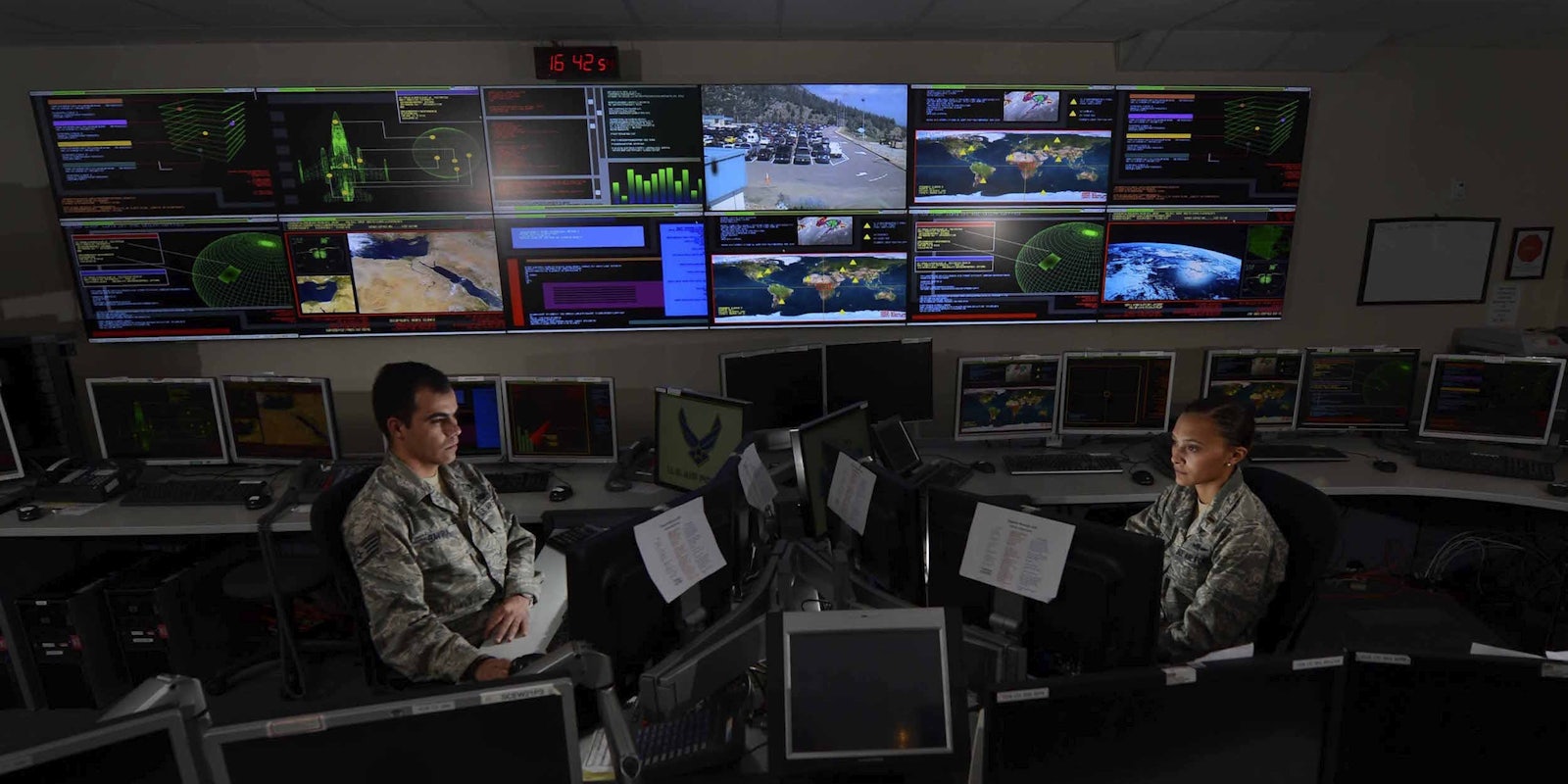The Pentagon is preparing to autonomize its cyberwarfare operations, placing further emphasis on threat deterrence and cyberweapon research and development.
A plan under consideration by the White House would elevate the status of the Pentagon’s Cyber Command (CYBERCOM), which in the past has relied heavily on coordination with the National Security Agency (NSA) and Central Security Service (CSS), Reuters reports.
CYBERCOM may graduate to become more self-contained as a “unified command,” a designation typically given to divisions of the U.S. military overseeing specific geographic theaters (e.g., Pacific Command, European Command, Africa Command, etc.)
At present, CYBERCOM falls under the umbrella of U.S. Strategic Command, another functional component of which guards military interests in space, including communication satellites and early-warning missile detection systems.
If completed, the move would demonstrate further how the U.S. military has evolved to perceive threats in cyberspace as equivalent to those faced on physical battlefields. Moreover, it is likely to advance the Pentagon’s goal of supplying viable cyberwarfare capabilities, either to enhance or replace “kinetic” attacks during escalating military conflicts.
Another key focus of the Pentagon’s strategy on the virtual battlefield is deterrence, actual fortifications being separate from the more propaganda-focused efforts to dissuade attacks by malicious actors. One way CYBERCOM may accomplish this goal is by ramping up development of cyberweapons which may be used to disrupt an adversary’s military infrastructure, demonstrating that the risks associated with targeting U.S. interests outweigh potential benefits.
According to the Pentagon, threat deterrence “will not be achieved through the articulation of cyber policies alone, but through the totality of U.S. actions, including declaratory policy, substantial indications and warning capabilities, defensive posture, effective response procedures, and the overall resiliency of U.S. networks and systems.”
H/T Reuters


